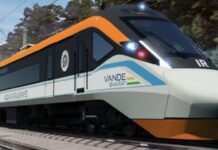New Delhi: The two-day Gujarat conclave of the Science and Technology (S&T) Ministers of the State Governments, beginning in Ahmedabad on September 10, will seek to explore State-specific technologies and innovations for adoption and scaling up through integrated approach with Centre’s collaboration.
Prime Minister Narendra Modi is set to flag-off the event, which also aims to present the vision for 2047 for the S&T sector and challenges the States might to grapple with while implementing the vision document, said Union S&T Minister Jitendra Singh after reviewing the preparations of the show.
The conclave will also discuss challenges and needs of States and strategies for future growth pathway of S&T sectors in the States. “A broad mapping of priorities, challenges, expectations and technology needs of each of the States can be met through collaboration with various S&T departments of the Centre,” the Minister asserted.
The States/UTs can work in convergence for optimum outcomes with six Science Departments –Department of Science and Technology (DST), Department of Biotechnology (DBT), Council of Scientific & Industrial Research (CSIR), Ministry of Earth Sciences (MoES), Department of Atomic Energy (DAE) and Department of Space (DoS). All these departments as well as industry representatives will participate in the conclave.
Also Read: IIT, Gandhinagar, gets state-of-the-art supercomputer under NSM
The Minister said that “doubling private sector investment in R&D by 2030” and supplementing the country’s and State’s overall economy will also be a key agenda of the conclave in tune with AtmaNirbhar pitch of the Modi Government. “Important plenary sessions with State S&T Ministers will be organized during the summit on issues like agriculture underlying technological interventions for improving the farmer’s income, innovation for producing portable drinking water including application of technologies like desalination, Heli borne methods developed by DST, clean energy for all including S&T role in hydrogen mission, Deep Sea Mission of MoES and its relevance for Coastal States/UTs as well country’s future economy, digital healthcare for all and synergizing science with national education policy,” added Singh.
The conclave also have a special session with the CEOs of over 100 startups and industry with a view to exploring the State specific solutions for unique problems faced by individual States. “The conference this time is being given a different format with focus on new technologies relevant to each of the different States/UTs and their optimum application for “ease of living”. It will also help break silos between the Centre and the States, while strengthening Science Technology & Innovation (STI) ecosystem through greater synergy across the country,” the Minister added.
Also Read: Indian astronomers hit upon massive black hole in system
Science & Technology Ministers of all 28 States, administrators of 8 UTs, key officials from States – Chief Secretaries, Principal Secretaries in-charge of S&T in the states and all Science Secretaries to Government of India e.g., DST, DBT, DSIR, MoES, DAE, DoS, ICMR, ICAR, Jal Shakti, MoEF& CC, MNRE are expected to be represented at the conference.
- Union Minister Jitendra Singh reviews preparations of the two-day conclave at Ahmedabad to be inaugurated by PM Modi on Sept 10
- The broad theme of the conclave will be to present a Vision 2047 for S&T sector with particular reference to meeting the S&T challenges of States
- Plenary Sessions on Agriculture, Water, Energy, Health, Education and Deep Sea Mission with State S&T Ministers will be the key highlight of the conclave
- A special session with the CEOs of over 100 Start Ups and industries will try to explore state specific solutions for unique problems faced by individual states




